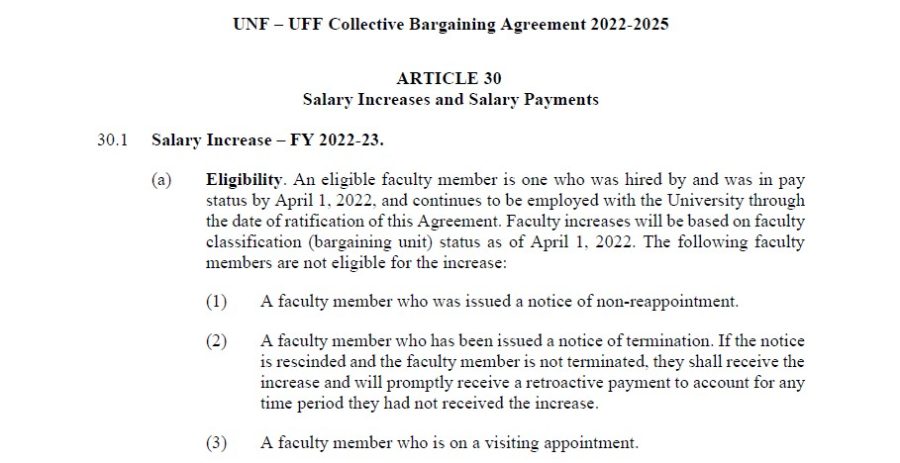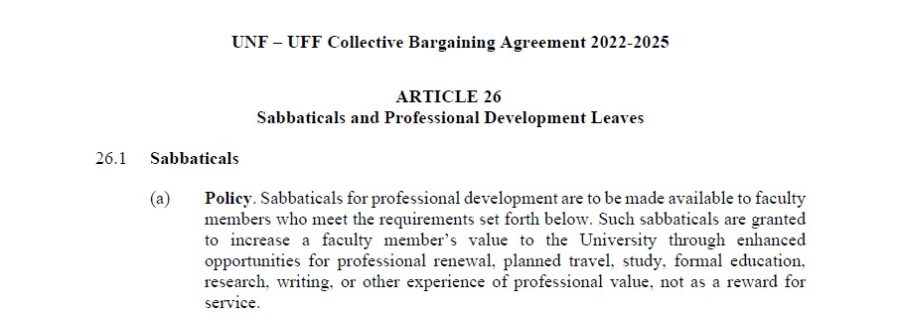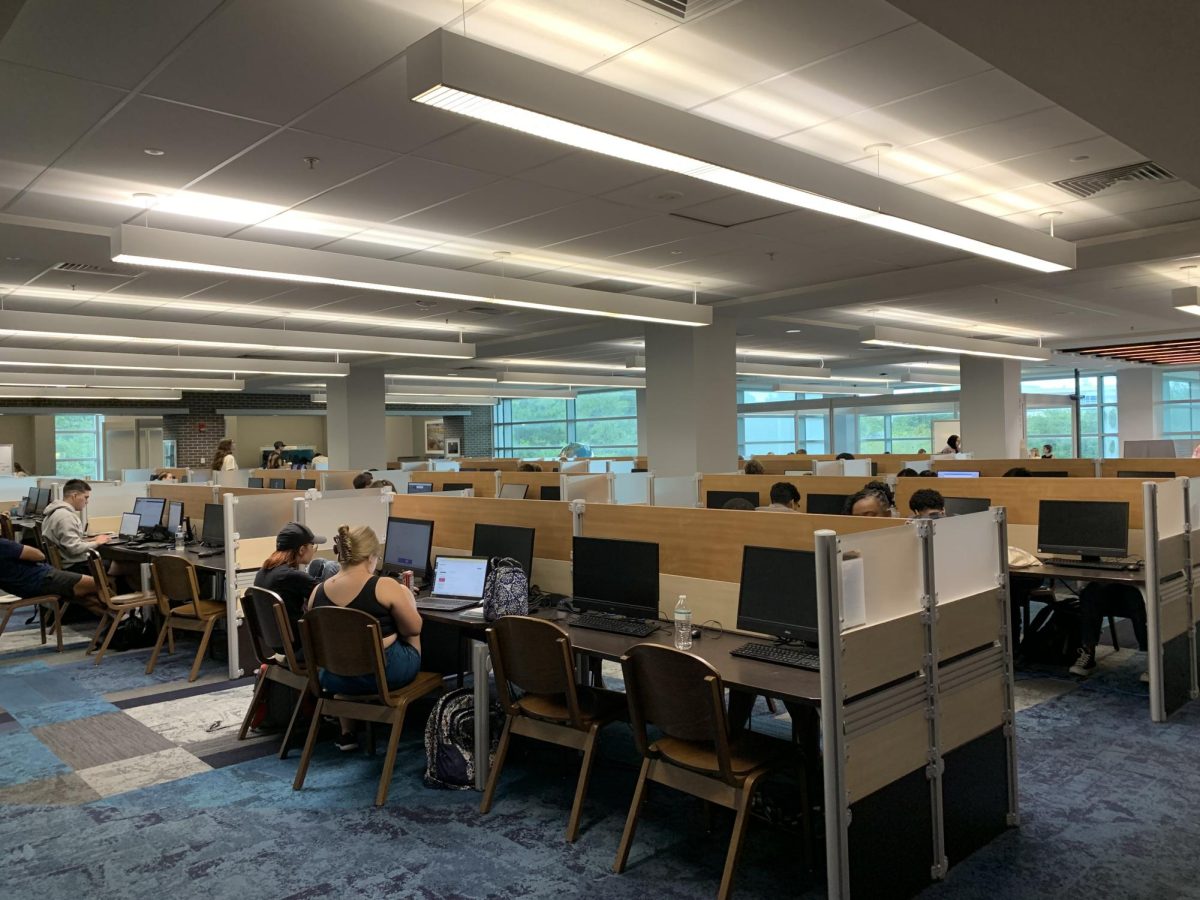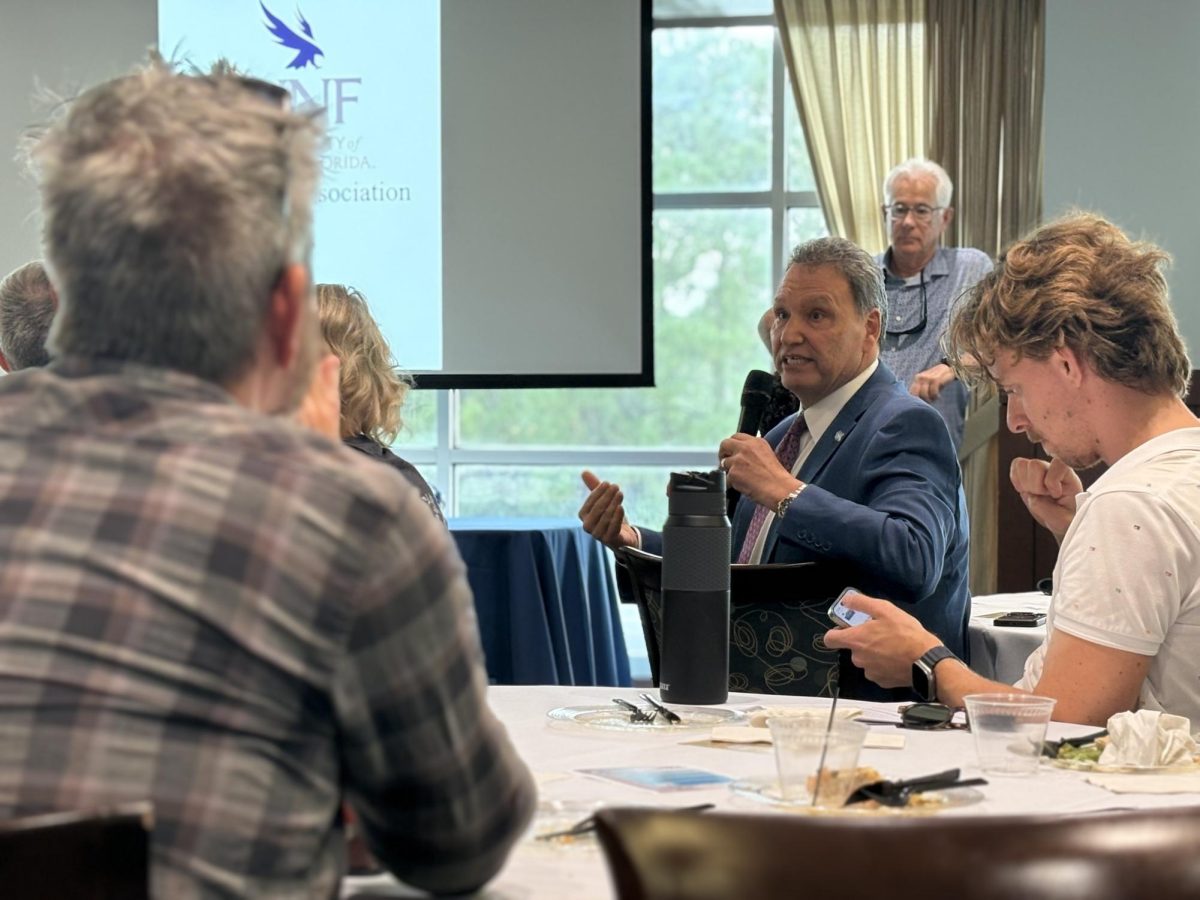A new contract has been approved for faculty at the University of North Florida (UNF) but the document, which spans a hefty 254 pages, is just as complex as it is long.
This contract is an agreement between the UNF Board of Trustees and the faculty union, United Faculty of Florida (UFF-UNF). It took effect on Nov. 17, 2022, and will run through July 31, 2025, when it will be renegotiated again.
Spinnaker spoke with Elizabeth Brown, UFF-UNF’s president and an associate professor in the psychology department, to unpack the most important things to know, arranged in no particular order.
#1. Salary
Salary, specifically low salary, is a huge issue at UNF where faculty are paid the lowest of all Florida State University System (SUS) institutions, according to a 2020 to 2021 faculty salary analysis by the National Education Association (NEA).
Each time contract negotiations reopen— typically every three years — Brown said one of the first things they focus on is salary.
Now, every eligible faculty member will receive a 5% raise. It will be equivalent to 5% of each faculty member’s August 8, 2022 base rate of pay, according to the contract’s language. With very limited options for salary increases, Brown said it’s something faculty have been looking forward to.

Faculty raises function differently than the typical employee at other non-university companies. In other jobs, employees can expect small raises over the course of the year and may receive bonuses for good performance. It’s different for faculty.
“Given the extreme inflation, [the 5% raise] is very welcome to faculty,” Brown said. Between Sep. 2021 and Sep. 2022, the U.S. Bureau of Labor Statistics reported that inflation rose 8.2%.
On top of the pay raise, eligible faculty were also given a one-time $1,000 bonus, announced by UNF President Moez Limayem ahead of Thanksgiving break last year.
#2. Compression and Inversion Task Force
Brown said the university was already in the process of hiring an external firm to look at salaries for staff and for administration, so now they will look at faculty salaries as well. Essentially, they will analyze UNF faculty salaries and compare them against national standards.
Salary compression — also called wage compression — is when newly-hired, less-experienced faculty receive similar salaries to what already existing faculty members make. Salary inversion is when senior faculty members make less than newly hired or newer faculty members make.
From a hypothetical university perspective, that would be like a professor who’s worked at UNF for 30 years earning the same amount of money as someone who was hired fresh out of grad school.
“What we’re hoping that entity will be doing is to look at the national benchmarks, look at the averages upon averages and then kind of look through person by person and determine what should be the pay based on the national averages versus what is the pay,” Brown explained.

The results that the external firm comes up with will also help the faculty union effectively negotiate salary and wage adjustments in the future. This compression and inversion analysis will allow faculty to get answers to questions like “How far behind are we?” and “What should we be at?” with regard to salaries.
Of course, Brown noted, because it’s an external company, they will have no idea what the results are until the final product. However, faculty are excited that UNF is committing to this move.
“We’re hopeful and faculty are really excited about the university, acknowledging that this is a long-standing issue and starting to make progress towards identifying where the issues are,” she said. “And hopefully we can come up in the future with solutions about how to fix it; it’s a pretty big issue.”
#3. Leave and Sabbatical
In the previous contract (which lasted from 2017 to 2020), faculty were allowed one full-semester sabbatical at full pay for every 40 eligible faculty members. Now, they have one for every 25 eligible faculty members.
There are two types of sabbatical leaves, otherwise known as professional development leaves. The first is a semester-long at full pay and the other is a year-long at half pay. During that time, faculty members would work on their projects or whatever they stated that they’d be focused on.
It gives faculty time to do research, develop new research skills and new teaching techniques, Brown said.

Obviously, the full-pay option is more competitive. Faculty must still apply, get letters of reference and be approved by a committee but the new ratio of sabbaticals to eligible faculty members increases that likelihood.
“You still have to, you know, really prove that you have a really cool project, and you need the time,” Brown said. “But it’s more possible for people to get it.”
The contract in its entirety
The main focus of faculty in this contract was pointed toward salary and, more specifically, salary increases. That was achieved with the 5% but there is still room for improvement.
“So we have some faculty making really low wages lower than even elementary and secondary school teachers in local school districts. And so 5% is a big deal. It’s a huge raise, and it’s the biggest set we’ve ever had in one setting,” Brown said. “But given the disparities that are existing in our units, there’s still a lot of need.”
Though this contract is in place until 2025, Brown told Spinnaker it doesn’t mean UFF-UNF will stop fighting and advocating for higher pay.
“Especially as it relates to things like gender disparities, racial disparities, all of it,” she said. “We want to make sure that people are equitably compensated as compared to [the] market.”
Read the full 2022-2025 faculty contract here.
___
For more information or news tips, or if you see an error in this story or have any compliments or concerns, contact editor@unfspinnaker.com.
















